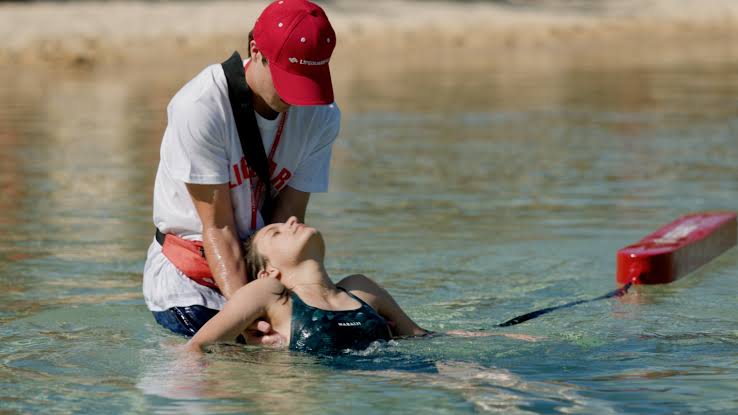Winter vs. Summer: The Diverse Responsibilities of a Lifeguard
Lifeguards are unsung heroes, often taking on a demanding role that differs significantly between summer and winter. Their responsibility transcends simply watching over swimmers in sunny weather. While both seasons require vigilance and quick thinking, the lifeguard’s role varies greatly to adapt to the unique challenges posed by these opposing seasons.
In this article, we will explore the contrasting responsibilities of lifeguards during summer and winter, shedding light on the critical role they play in ensuring public safety.
Summer: A Lifeguard’s Playground
In the summer, the lifeguard’s world transforms into a bustling beach or poolside paradise. The responsibilities shift into high gear as they become the guardians of aquatic fun and safety.
- Supervising Swimmers
During the summer, lifeguards are primarily responsible for supervising swimmers. They vigilantly scan the water, keeping a close eye on everyone to detect any signs of distress, injury, or struggling swimmers. Quick and effective response to emergencies is paramount.
- Water Rescue Skills
Summer lifeguards must be well-versed in water rescue techniques. This includes being proficient in swimming and using rescue equipment like lifebuoys and rescue tubes. Rapid deployment and efficient use of these tools can make all the difference in a life-threatening situation.
- Sun Safety
In the blazing summer sun, lifeguards must also be aware of the dangers of excessive sun exposure. They often need to advise beachgoers on the importance of sunblock, hydration, and the risks of heat-related illnesses.
- Crowd Control
Beaches and pools get crowded in the summer, and lifeguards need to maintain order. They ensure swimmers stay within designated areas and prevent risky behaviors, like diving into shallow waters or overcrowding in a single area.
- First Aid and CPR
Lifeguards must be well-versed in first aid and CPR techniques. Responding swiftly to injuries or medical emergencies is crucial for ensuring the well-being of beachgoers or pool visitors.
- Communication Skills
Good communication skills are vital in summer. Lifeguards need to communicate effectively with distressed swimmers, colleagues, and beach or pool management. They must calmly and clearly instruct individuals in danger, coordinating rescues or emergency responses.
Winter: Lifeguarding in Cold Realities
As winter approaches, lifeguarding takes on a whole new dimension. The serene beaches and pools of summer give way to the challenges of frigid waters and icy conditions.
- Ice Rescue Skills
Winter lifeguards must be prepared for ice rescue. Frozen lakes and rivers pose a unique set of risks, with the potential for individuals to fall through the ice. Lifeguards need to be trained to perform ice rescues safely.
- Hypothermia Awareness
Working in cold conditions, lifeguards must be vigilant about recognizing the signs of hypothermia. They may need to administer first aid and coordinate medical assistance for those affected by extreme cold.
- Snow and Ice Removal
Lifeguards in the winter may also be responsible for maintaining safe access points to icy waters. This includes shoveling snow and salting walkways to prevent slips and falls.
- Winter Water Safety
Even during the winter, some brave souls venture into the cold waters. Lifeguards must monitor these individuals, ensuring they are aware of the risks and are taking necessary precautions, such as wearing appropriate cold-water gear.
- Coordination with Emergency Services
Lifeguards in the winter frequently collaborate closely with nearby emergency services, including fire departments and search and rescue teams, to address cold-water emergencies. Effective communication and coordination play a critical role in these scenarios.
- Equipment Maintenance
Lifeguards in winter must ensure that their equipment, such as ice rescue suits, is in top condition. Regular maintenance and checks are crucial to guarantee that all gear is ready for use when needed.
The American Lifeguard Association: The Beacon of Lifeguard training
In both summer and winter, the role of a lifeguard is paramount in safeguarding lives and ensuring public safety. To become a lifeguard, individuals need to undergo comprehensive lifeguard training. Finding lifeguard classes near you is the first step to acquiring the skills and knowledge necessary for this demanding job.
Lifeguard certification is the key to becoming a certified lifeguard. It is a testament to an individual’s ability to handle water-related emergencies effectively. The certification process typically includes rigorous training, theoretical knowledge, and practical assessments.
The American Lifeguard Association (ALA) stands among respected organizations that deliver lifeguard training and certification. They provide nearby lifeguard classes, ensuring that those aspiring to become lifeguards are adequately prepared for their roles, be it in the sunny summer or the icy winter.
To sum up, a lifeguard’s responsibilities are multifaceted and adapt with the changing seasons. Whether it’s the watchful gaze over swimmers in summer or the execution of ice rescues in winter, lifeguards perform a pivotal duty in upholding public safety.
Their training, certification, and dedication are essential in preserving lives and making aquatic environments safe for all. The American Lifeguard Association stands as a symbol of excellence in lifeguard training, equipping lifeguards with the skills and knowledge necessary to face the challenges of every season.






